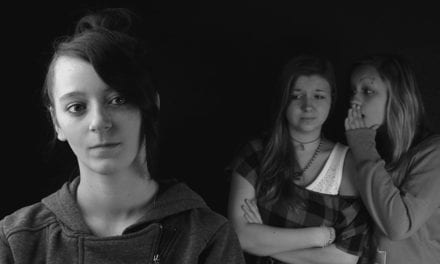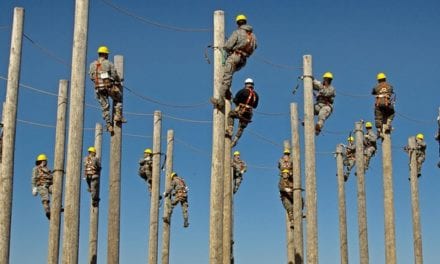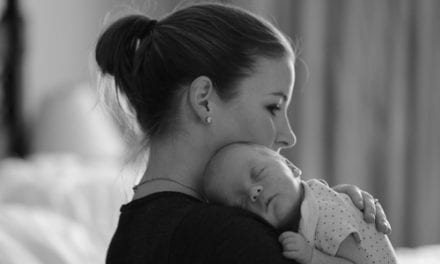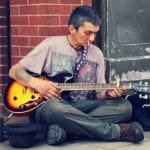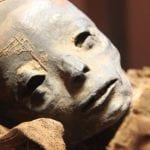Procession
In retrospect, it was the worst mistake Rebecca had ever made. She ruined a man’s life. It pained her to admit that because she learned to never regret anything in the past. It made you stronger. But she couldn’t live up to the cliché. She thought about that last day on the bus with her summer-abroad group, the departure ride to the José Martí airport in Havana. She fell for Joaquin when he made his declaration of love.
She sat in the back resting her face on a sleeping bag, against a curtained window. She borrowed a friend’s sweater and placed it over her head. Nobody saw her tears. At one point, she stared at the decayed buildings, the swaying palm trees and the unpaved streets, which she found comforting. She sobbed aloud until she heard Joaquin’s voice and footsteps towards the front of the bus. She snapped her neck and poked her head forward, and observed the way he grabbed the tour guide’s microphone and spoke to the crowd.
“I just wanted to let everyone know that it was a great pleasure to meet you all. I have worked as a doorman at this hotel for many years─I have never met such amazing people. You have given humanity hope. You can all go home knowing that you changed people’s lives here in Havana. Specifically, I wanted to thank Sebastian,” he lifted his arm and extended it in a young man’s direction, “he was the first person who began speaking to me. Thank you my dear friend. I won’t forget you. We Cubans are good, decent people. Thank you for seeing beyond our government’s limits. And also he introduced me to Rebecca―the most beautiful person in this entire world.” His confidence was impressive.
“I’ve been going out with Rebecca almost every day. We have been learning so much about each other and our cultures. It has been one of the most rewarding experiences in my life. I wish it didn’t have to end. I wish I could jump on this bus with you and go to America, but life doesn’t always work out the way you want it to. I love you Rebecca, you are my soul mate. You have my heart for eternity. I wish I could have you by my side here in Cuba. I love you all! I hope you can come back someday. And if you do, you will always be welcome. The doors will always be open in Havana.”
Joaquin chose his words carefully. It was not uncommon for people from Europe and the United States to import a spouse. It was more common for a man to take a woman, so the men worked harder at encouraging foreign women to fall in love with them. Joaquin’s brother worked in the airline industry and had found a spouse in France. He was now living in Paris. When Rebecca showed interest, Joaquin understood there was a possibility of long-term commitment and United States citizenship. Love and sex were on his mind, coupled with opportunism. He did what he could to leave her with a memory of a fairy-tale foreign love affair.
Of all the men Rebecca had dated, none showed such grace. But she had questions. How could he be so positive growing up in a country like Cuba where all he’s ever known is Castro’s Revolution―with all the rations? How could he have such inner poise and still only seek beauty and truth despite the chaos around him? How could this lovely, beautifully burnt-scarred man be so bold as to convey such majestic words?
She didn’t think he was handsome. The scars on his face that extended up to his severed ear made him look awkward, deformed almost. It was due to a car accident many years ago that had almost killed him. He tackled his facial deformity head-on with laughter—it gave him character. Even though she knew it was only a three-month summer fling, the passion transcended anything she ever experienced. When her university program ended, she believed she could waltz away with no attachment, back to casual dating. But in her bleak one-bedroom apartment in Hermosa Beach, she sobbed daily―lengthy, painful nights.
She reviewed how she had lived up until that moment. She became disgusted by her egocentricity. She stared out of the dusty window and examined the crashing waves foaming at the meeting point with the gleaming glassy sand, and she observed blurred silhouettes of surfers seeking that ultimate bliss. Hordes of scattered people walked amongst the strand ebbing into bars and restaurants, spending in excess. Swarms of people rollerbladed, skated, cycled, ran, and played volleyball, and they fussed about their no-carb diet, the streaks in their hair, and uneven tan lines. She felt embarrassed for the way she lived. She schemed and manipulated men, and she took them to bed without any commitment. She felt an unusual loneliness and sobbed for about an hour.
And then she thought about Joaquin and Havana. There was a man who once claimed he would swim across an ocean full of piranhas to be near her. He claimed he would assassinate a dictator to get a change of government that would allow peaceful dialogue so they could marry. He lived thousands of miles away where people cared about political issues and foreign affairs, unlike the emptiness around her. People in Cuba died trying to get to a land of freedom. They stood in lines for hours waiting to buy expired milk or old fish, and spent decades in prison for stealing food. And then a light shined in her head. She finally understood what happiness was. It was the ultimate sacrifice of self. It was to justly provide happiness for another person, to live for other people and bring forth their happiness. And it was as if a new revelation was provided to her. It was quite simple―marry Joaquin and bring him over from Cuba, have children, and give them all a better life. She proposed.
When she returned from her summer-abroad program, they kept in touch via phone calls from her. Once he accepted her proposal, she spent thousands of dollars on trips to Havana trying to facilitate their dilemma. She made wedding preparations and bought rings, and paid exorbitant rates for international phone calls. She spent hours filling out foreign paperwork in English and Spanish, and spent her summer and winter breaks from her teaching job, and paid sick-leave in Cuba. Two years later, she stood at the LAX airport, pregnant, ready to begin her new life of family happiness with Joaquin. She hadn’t seen him for months, but on that last visit when they made love she became a mother. It was exhilarating for her, although her family and friends advised against it. When he walked onto the waiting area at the airport he didn’t notice her. His eyes wandered and assessed so much movement. In Havana, he had only been to the airport a few times to pick someone up, but he hadn’t seen this many people. Perhaps it was the first sign of distress, but neither of them recognized it.
The first time she took him to buy clothes he almost had a heart attack. So many options at so many places, with any label you wanted. So many fresh fruits and vegetables, including edible produce in the garbage. So many different types of meats, fish, and chicken. So many condiments and seasonings, so many restaurants, cafes and pubs, so many options of everything, which was too many. Joaquin had never set foot outside of Cuba. Havana was like a bubble for people who grew up there. He was nearly forty and the simplicity of Havana was gone. He met tourists at the hotel that told of great adventures, but eventually they left and he resumed his simple life. In Havana he practiced Santeria daily, and wearing all white on certain days as a ritual was of grave importance. He hadn’t seen anyone in Los Angeles wearing all-white once. He couldn’t visit his mother, friends, or his religious circle anymore. Everything he knew and held dear had vanished. A simple walk to El Malecon was non-existent. He couldn’t explain how he felt, why his mind fluttered at the slightest glance at so many consumer products, how he would shut down while she took him shopping. After a few months she found it pathetic. She didn’t know how long it was going to take him to acclimate to modern society. It wasn’t like he was institutionalized.
~~~OOO~~~
“Why are you always just sitting around watching T.V.?” asked Rebecca in fluent Spanish. “I’m talking to you, why are you always ignoring me? Are you not attracted to me anymore? You haven’t touched me in months. When are you going to take those English classes I paid for?”
“When are you going to shut up!” Joaquin stared intensely at her. “I can’t do anything, or not do anything without you saying something.”
“We never see each other. I know you work nights but you could at least acknowledge me when I’m home.” He worked as a stockman at a big box warehouse store.
“Shut up before you wake up the kids. I’m always tired. I have to work nights―we have to pay the house.”
“Weren’t you supposed to get a raise and move to the day shift?”
“Nothing is enough―it’s never enough!”
“Oh great, you woke up the kids.”
“I’m so sick of you. There’s always something.”
She no longer recognized this person. It had been five years and still he had not adjusted. He missed Cuba, Santeria, his friends, and family, even though his children and wife were his new family. In the United States people had to earn their living and employ a strong work ethic, in Cuba you got by with hand-outs and complacency. Los Angeles was not a place where they championed mediocre behavior, and she was beginning to believe it was a mistake to have brought him over from his natural habitat. She thought perhaps family happiness was a myth.
When Rebecca’s mother passed away in Las Vegas, it was important for her to show a strong united front with husband and children for her father. Her only sister had committed suicide two years prior, so her father was in a destructive state. With so much death around him, Rebecca and her family represented rebirth.
She pleaded Joaquin for understanding, “Can we please not argue this weekend, please? This is important to me. I’m so tired of all this. I just want to get through this. I need you to be strong right now because I need to be strong for my father. I don’t want him to see us like this, okay. Just try to be caring, at least this weekend.”
She was tired of communicating in Spanish. She could never articulate the true depth of her feelings because it wasn’t her mother tongue. She learned Spanish from her Mexican American friends in high school, and then in college. She also did an immersion program in Spain before her study-abroad program in Cuba. It was impressive to her Anglo family and friends, but being bilingual wasn’t as romantic and cultured as people assumed. The parents’ house in Las Vegas was cold and empty and it reminded her of her home setting in Gardena. She was taken aback by the duplicity of both atmospheres. One was splattered with death, the other with blooming life.
The day of the viewing, Rebecca’s father and her children were in the living room watching television when they heard a door slam. Rebecca wailed and they couldn’t make out if she was sobbing or laughing. After a few seconds both Rebecca and Joaquin were groaning, sighing, and grumbling as if they were moving furniture. Her father’s ears pricked up as he looked with astonished eyes towards the children. They looked at him with despair and embarrassment. The father got up from the sofa and stomped towards the bedroom. The children followed. When he opened the door, Rebecca’s head was lowered and her face set in a deep struggle. Her arms flailed and swayed without navigation. Joaquin was flinging his fists on her head and dropping blows downward on her back — he looked startled to see his father-in-law charging toward him with a baseball bat.

